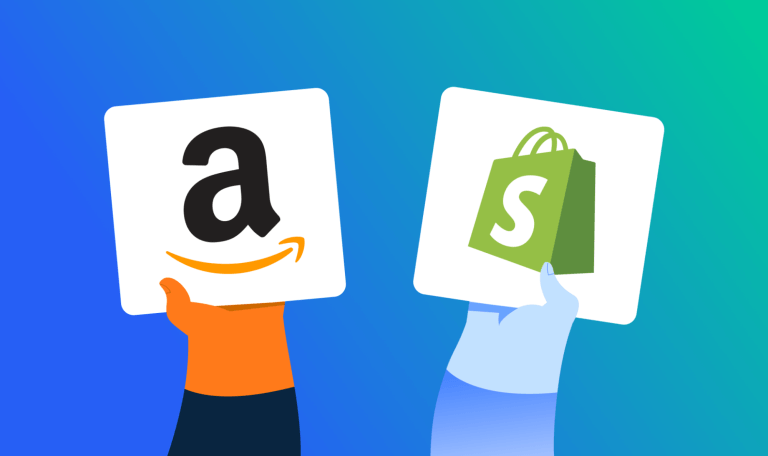Ulta vs. Sephora: Which is the Best Fit for Your Brand? (+ Top Brands Ranked)

In the battle of the beauty retailers, Ulta vs. Sephora are cheek to cheek for first place in the U.S., winning nearly 4.6% (33.6M monthly visitors) and 4.2% (32M monthly visitors) of industry traffic, respectively for February-April 2021. This tight race makes it very challenging for CPG brands to assess which retailer(s) to use to distribute their beauty products. To help decide, we’ll look at trends behind the top brands leading organic search (first makeup, then skincare) for Sephora’s and Ulta’s websites using traffic and engagement data from Similarweb’s Research Intelligence to evaluate differences in consumer behavior.
Sephora customers value brand names
Nearly every single organic search term driving traffic to sephora.com is branded.
In contrast, Ulta customers seem to be more product-driven. Product-related searches, like “bio-oil,” “azelaic acid,” and “press on nails,” rank among the top organic keywords driving traffic to ulta.com.
Ulta customers are driven by value
In lieu of brand names, Ulta’s customers value low pricing. Three of ulta.com’s top ten most-trafficked pages in 2021 relate to savings and discounts. This includes pages on coupons (ulta.com/global/ulta-coupon.jsp), its 21-day sale (ulta.com/21days), and more general promotions and sales (ulta.com/promotion/sale).
Ulta’s top makeup brands cost less than Sephora
Although both Ulta and Sephora carry many of the same brands, the most popular brand-related keywords for each retailer demonstrate clear pricing differences – Ulta’s top makeup brands cost significantly less than Sephora’s.
For instance, blush from E.l.f, Ulta’s number one brand, is priced at $6.00 whereas blush from NARs’, one of Sephora’s top brands, costs five times more – $30.00.
A return to in-store shopping
Products from Ulta’s number one (E.l.f) and number two (NYX) brands are both available at local drug stores like Walgreens and CVS. Although the pandemic propelled the growth of online retail, Raydiant’s consumer report showed that 46% of consumers prefer to shop in-store even in January before the height of the COVID-19 vaccination rollout.
Months later, more consumers feel safer shopping and we suspect that more cosmetics customers may continue to return to shopping in-store (particularly if their local CVS or Walgreens is just around the corner). Another benefit of in-store shopping? Many retailers let shoppers “test” beauty brands.
What does this mean for our trusted cosmetic retailers, Sephora and Ulta?
Declines in organic traffic to both sephora.com and ulta.com validate this hypothesis. In 2021 (Jan. – April), organic search accounted for 23% and 29% of visits to sephora.com and ulta.com, respectively. This is a 4 percentage point (ppt) and 3vppt decline from the prior year (27% and 32% respectively).
Ulta.com also attracts less direct traffic (42%) than Sephora (50%) which indicates lower customer loyalty to the retailer. This suggests that Ulta customers are more likely to shop in other places, like drug stores. Its brands may be more heavily impacted by consumers returning to on-site shopping.
Skincare: more difficult decisions
Although top makeup brands illustrate different customer preferences for Ulta vs. Sephora, it seems like customers are on more even ground for skincare products – that is if your brand is ordinary.
The Ordinary, a cult-favorite brand recently acquired by Estee Lauder, is one of the few brands that appear in both retailers’ top 10 lists. Though its customers are typically less brand-centric, four of Ulta’s top 15 keywords driving traffic to its website relate to The Ordinary (vs. two for Sephora). These terms include “the ordinary,” “the ordinary niacinamide.” The Ordinary has seen strong growth on both channels (+265% YoY, Sephora, +186%, Ulta).
Given The Ordinary’s popularity, similar brands that fit The Ordinary’s profile may also want to consider dual distribution. Check out a few of The Ordinary’s characteristics to see if your brand’s profile matches up:
- Masstige: The term refers to pricing that is attainable to the masses but marketed as luxury or prestigious. Most of The Ordinary’s products are priced at $3.95-$28.90.
- Strong brand identity: Cult following = bonus points.
- Pure ingredients: Just a few are listed on The Ordinary’s labels.
- Celebrity following: Kim Kardashian is a fan.
To see more on The Ordinary, check out our recent lessons from the beauty brand’s acquisition.
Conclusions for beauty brands
If it is necessary to decide between distributing your products at Ulta vs. Sephora:
- Sephora is a better fit for brands with higher price points and a more discerning clientele.
- Pricing should be competitive to distribute at Ulta, as value is important to its audience.
- Be wary of the negative impact the return of in-store shopping may present to online retailers, particularly those that carry brands with lower price points and high accessibility.
- Skincare brands are stronger candidates for dual distribution than makeup brands.
Want to learn more?
Download our beauty industry expert’s full report on beauty behemoths.
Get your own insights
In addition to Research Intelligence, Similarweb’s eCommerce solutions also include Shopper Intelligence. Get in touch to learn more about how your brand can best leverage these tools.
The ultimate edge in marketplace intelligence
Put the full picture at your fingertips to drive product views and sales













